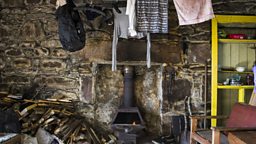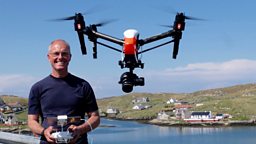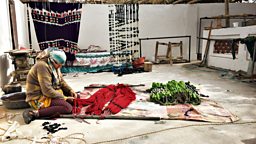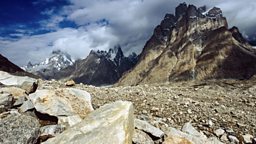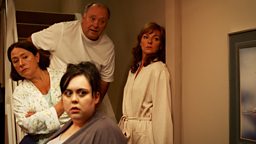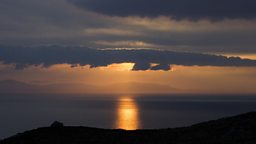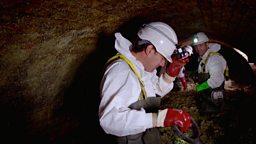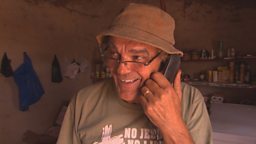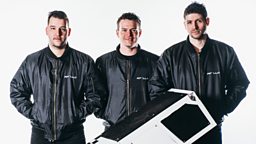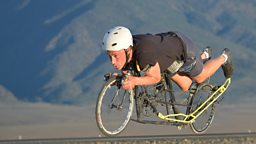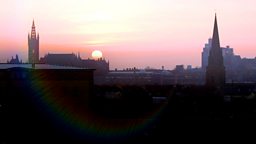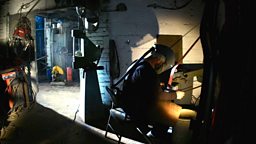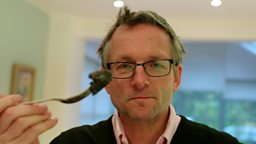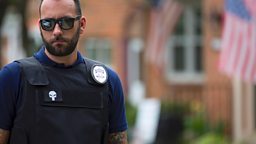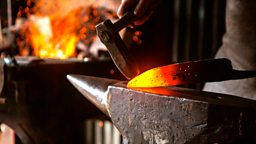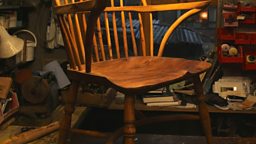Serendipity and the art of filmmaking: how one phone call revealed a hidden side to cycling legend Graeme Obree
By David Street, Director, Battle Mountain
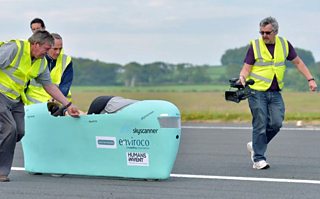
Graeme Obree is a Scottish racing cyclist who twice broke the world hour record and was individual pursuit world champion in both 1993 and 1995. He has also created some radical innovations in bicycle design. In the zone, At home. Usually in his kitchen.
Having already worked on the feature film that bears his nickname, , Graeme understood very well the amount of time it takes to set up camera and lights; the process of sound calling for retakes and how a director strives for perfection.
He was, therefore, understandably wary of having his own maverick working processes interrupted again with “Action!” as he battled to build the machine on which he could break world records.
However, unlike the movie, I filmed Graeme for in observational documentary format. We agreed that I wouldn’t ask him to repeat any actions for the camera; that if I didn’t catch the footage the first time, then we just wouldn’t have it. It was a leap of faith on my part that something special would happen and a story would unfold while I had the camera running.
One of those chance moments arrived on the morning of 24 August 2012.
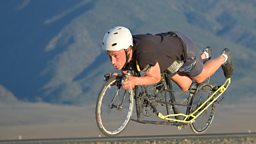
Talking drugs at the Art School
By the time that morning came around, I’d already been filming for a little over nine months of what was to turn out to be a mammoth three-year project. Graeme had finished building the mechanics of The Beastie – the hand-made prone cycle on which he was to attempt a world record – and was now working with the team at Glasgow School of Art to build an aerodynamic shell for the machine.
Graeme went there to help with the sanding and smoothing of the foam model. I was filming him when his phone rang. It was �������� Radio 5Live, asking him to discuss Lance Armstrong, the one-time hero of international sports and then most notorious of cycling’s drug cheats, who had just been .
Graeme’s experiences and stance against drugs in cycling were well known and all the news outlets wanted him to comment. He was hot property and I was there with the camera rolling. Graeme agreed to an interview with Stephen Nolan right then and there. Because I was working completely on my own, I didn’t have time to go through the processes of getting permission from the �������� to record the interview. So I decided to film first and ask permission later.
Stephen and Graeme had a really good live interview. Every word going out — and I was there, capturing it all on camera.
As the conversation went on, I noticed that Graeme was getting more and more upset. When the interview finished, I kept the camera rolling as Graeme returned to work on his bike. He started to open up and talked more freely about the feelings and emotions the interview had brought up.
We had, of course, already talked a lot (sometimes on camera) about drugs in cycling, but this was the first time I’d seen Graeme get genuinely upset and resentful about what he had missed out on. His honesty – his stand in not taking drugs – had probably cost him a fortune in financial terms. With his world records and world championships, it’s easy to believe that had Graeme elected to take drugs, like many in the sport at that time, he could have become a very rich man, living a life of luxury.
The location in which I was filming – the machine shop of the Art School – gave me the opportunity to gather footage that really emphasised how much he’d missed out on. There was even a safety cage, which I used to reinforce the feeling of Graeme being behind bars and isolated. If I had shot the drugs story as a simple interview, I could never have managed anywhere near the level of poignancy I ended up getting there.
Right place, right time.
Graeme live on �������� Radio discussing Lance Armstrong and drugs
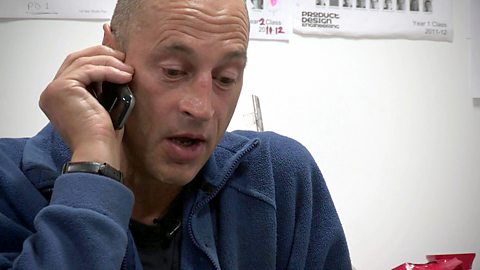
Discussing Lance Armstrong and doping on �������� Radio
Graeme gives an interview on live radio about drugs in professional cycling.
The luck of the French!
In the interview, Graeme claimed that most of the peloton – the group of elite riders who race at the very top of the sport – at the time was taking drugs like Erythropoietin (EPO). I was unsure if I could broadcast that claim. At this stage, I was still self-funding the film so couldn't afford to bring in a lawyer to check if we would be sued.
I had no way of defending myself. I couldn’t say “Here’s the truth” because I would have got sued out of my house!Graeme Obree
Then along came a second moment of tremendous good fortune.
Stephane Kohler, a specialist journalist from Europe’s leading sports newspaper came to interview Graeme for a profile piece he was writing. I filmed his interview with Graeme and afterwards asked Stephane if what Graeme had said about the majority of the peloton being on drugs was true — and if he felt it would be safe for me to use it.
Stephane had covered the whole drugs scandal from the 1990s and is regarded as an expert in the field. I felt I could trust his answer. He gave a resounding, "Yes, use it. No one is going to argue about it. It is now thought of as fact."
Right place, right time. Again.
Those two serendipitous moments gave me one of the strongest sequences in my film.

